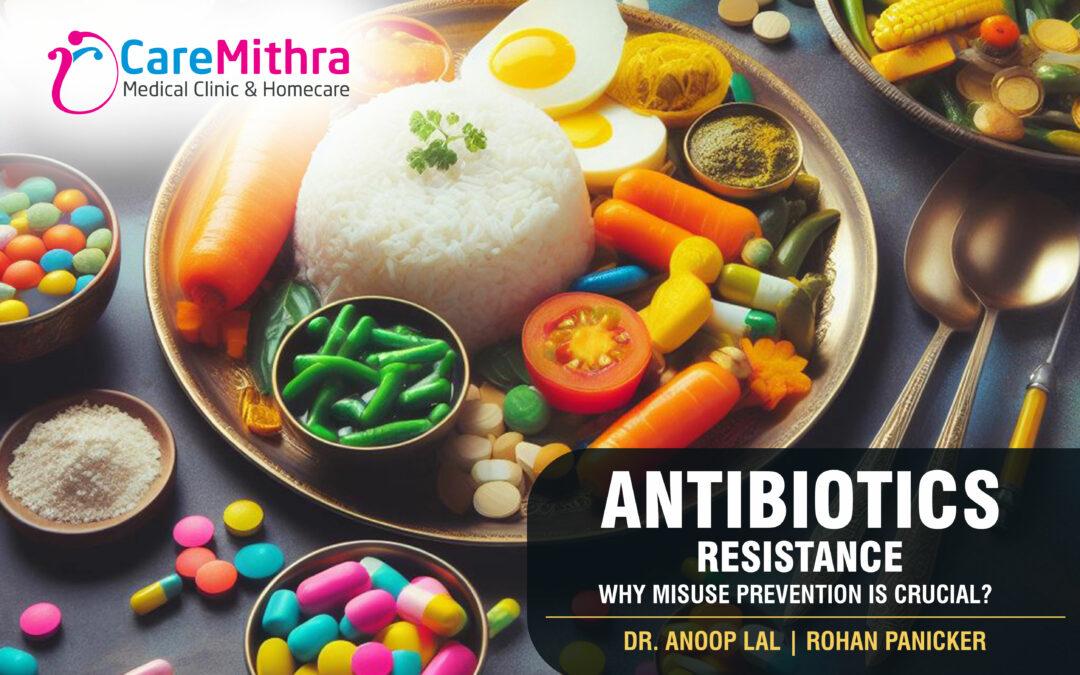Antibiotics have revolutionized modern medicine, saving countless lives since their discovery. However, their overuse and misuse have led to the emergence of antibiotic-resistant bacteria, posing a significant threat to public health worldwide. The rational use of antibiotics is imperative to preserve their effectiveness and combat the growing menace of antibiotic resistance.
Firstly, it is important to note that there are several forms of infections: viral, bacterial, fungal, protozoal etc. Antibiotics are effective only for bacterial infections.
The misuse and overuse of antibiotics catalyses antibiotic resistance among bacteria. Antibiotics are drugs; they use various mechanisms to kill bacteria, such as cell wall inhibition, protein synthesis inhibition, and genetic structure modification. Antibiotic resistance occurs when bacteria adapt and evolve to develop the ability to withstand the effects of antibiotics, rendering these drugs ineffective and thereby obsolete against them. This resistance can arise from spontaneous genetic mutations internally or through the acquisition of resistance genes from other bacteria, predominantly through Horizontal Gene Transfer (HGT) methods. Overexposure to antibiotics creates selective pressure, favouring the survival and proliferation of resistant bacteria.
The misuse of antibiotics accelerates the development of resistance, limiting treatment options for bacterial infections. This phenomenon not only increases healthcare costs but also leads to prolonged morbidity, higher mortality rates, and the spread of antibiotic-resistant bacteria within communities and their environment.
Rational antibiotic use involves prescribing and using antibiotics judiciously to maximize their efficacy while minimizing the development of resistance. This approach encompasses several key principles-
Diagnosis: Accurate diagnosis is essential before initiating antibiotic therapy. Medical practitioners should confirm bacterial infections through appropriate laboratory tests whenever possible, rather than relying solely on clinical symptoms. While doctors can make out the type of bacteria based on listening to patients describe their symptoms, it is ideal to confirm using tests (blood, pus swab, culture etc) for certainty.
Selection: Antibiotics should be selected based on the type of bacteria (Gram Positive, Gram Negative, Aerobic, Anaerobic etc), local resistance patterns, and the likelihood of adverse effects. Narrow-spectrum antibiotics should be preferred over broad-spectrum ones whenever feasible, as they target specific bacteria, reducing the risk of resistance development. The correct bacterial species should be identified before selecting the most effective and appropriate antibiotic for the infection. The method of consuming (orally or via injection) should also be selected accordingly.
Dosing and Duration: Antibiotics should be prescribed at the correct dosage (mg or g), frequency (no. of times per day), and for the appropriate duration (no. of days) to ensure optimal efficacy and prevent any possible emergence of resistance. Shorter courses of medication should be considered when viable to minimize the selective pressure placed on bacteria by antibiotics.
Understanding Potency: Newer and newer generations of antibiotics belonging to the same category are supposed to be of higher potencies. It is best to begin treating a bacterial infection by using an antibiotic with optimal potency, rather than going for the newest generation. Starting off treatments using the most recently launched highly potent antibiotic drugs come with a higher risk of that antibiotic becoming ineffective against the bacteria due to frequent exposure.
Patient Education: Patients should be educated about the proper use of antibiotics, including the importance of completing the full course of treatment and medication as prescribed, avoiding sharing, or saving antibiotics for future use, and understanding the difference between bacterial, viral, fungal, and protozoal infections. It is also important to be aware of the side effects caused by antibiotics (allergies, stomach pain, fatigue, vitamin deficiencies etc). Patients should understand that antibiotics are never an on-demand treatment option.
Infection Prevention: Implementing infection prevention and control measures like practicing proper hygiene and sanitation by handwashing with antibacterial soap, using hand sanitizer, wearing masks in crowded environments / healthcare settings etc is very important. Also, habits that strengthen the bodily immune system (healthy diet, sufficient exercise/sleep, stress management etc) can reduce the incidence of bacterial infections. There are vaccinations available especially for those who are more susceptible to bacterial infections.
Healthcare providers play a crucial role in promoting rational antibiotic use through adherence to guidelines, continuous medical education, and effective communication with patients. Policymakers must implement regulations to restrict the over-the-counter sale of antibiotics, promote antimicrobial stewardship programs in healthcare facilities, and support research and development into new potential antibiotic drugs and possible alternative treatment strategies. Ultimately, doctors should not prescribe any form of antibiotic that can legitimately be deemed as unnecessary, and patients must cooperate by not being demanding to doctors for antibiotics.
In conclusion, the rational use of antibiotics is vital for preserving these life-saving drugs, their potency, and combating antibiotic resistance within communities. By obeying principles such as accurate diagnoses, appropriate antibiotic selection, accurate dosage/duration, patient education, and preventive measures, we can optimize treatment outcomes while minimizing the risk of probable resistance emergence. Collective efforts from healthcare providers, policymakers, and the public are necessary to safeguard the effectiveness of antibiotics for forthcoming generations.
Article Credits
Dr. Anoop Lal, Medical Director, CareMithra
Rohan Panicker, Content Writer, CareMithra





